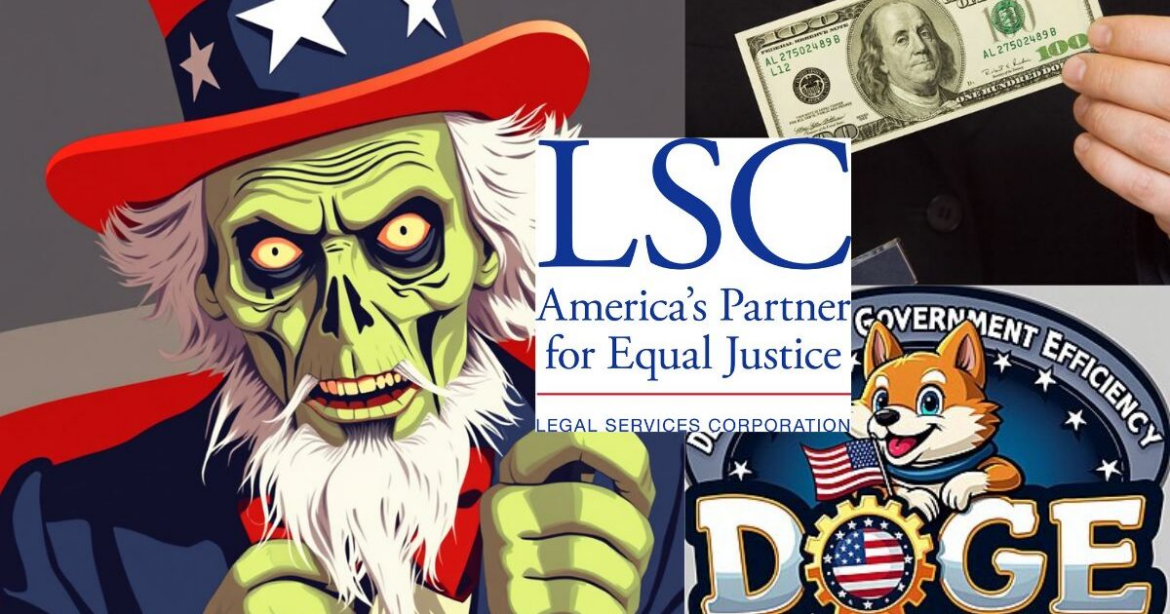“Zombie Programs” Are Devouring Your Tax Dollars — And Congress Keeps Feeding Them
While Americans face the burden of inflation, tax hikes, and a weaponized federal bureaucracy, more than 1,500 unauthorized federal programs continue to siphon off hundreds of billions in taxpayer dollars — many of them long past their legal expiration dates.
Despite lacking active authorization from Congress, these so-called “zombie programs” remain fully funded, propped up by routine appropriations and a lack of political will. According to the Congressional Budget Office, 491 of these programs alone account for $516 billion — nearly 8% of the federal government’s $6.45 trillion budget.
Meanwhile, President Trump’s Department of Government Efficiency (DOGE) — led by Elon Musk — has already saved taxpayers $140 billion by targeting fraud, waste, and duplicative bureaucracies, offering a stark contrast to the unchecked bloat quietly draining national resources.
What Are Zombie Programs?
A federal program must be both authorized and funded. Authorization gives a program legal existence and defines its purpose and scope, while appropriation allocates the money to carry it out. If a program’s authorization expires, it is supposed to be defunded — unless Congress reauthorizes it.
But in Washington, that’s not how it works.
Instead, Congress routinely bypasses expired authorizations, continuing to funnel billions to defunct or politically sensitive programs through omnibus spending packages, continuing resolutions, or “must-pass” appropriations bills — often with minimal oversight.
A recent investigation by RealClearInvestigations uncovered the scale of this quiet but systemic problem, revealing a government that funds long-expired programs as if they were fully lawful.
The Worst Offenders: Decades Past Expiration
Some of the most egregious cases include:
- Legal Services Corporation (LSC)
- Authorization expired: 1980
- FY2025 Budget: $560 million
- Created to provide legal aid to low-income Americans, LSC is now frequently accused of political litigation, progressive activism, and questionable lobbying. Despite its 1980 sunset, it remains fully operational with 135 employees and no current oversight.
- Federal Election Commission (FEC)
- Authorization expired: 1981
- FY2024 Spending: $95 million
- The nation’s primary campaign finance watchdog is operating on expired authorization for over 40 years, with few serious attempts to reform or reauthorize.
- Federal Communications Commission (FCC)
- Authorization expired: 2020
- FY2024 Spending: $28.4 billion
- Although a relatively recent lapse, the FCC controls massive swaths of the economy through spectrum auctions and media regulation — yet continues with no updated legislative mandate.
- National Endowment for the Arts (NEA) and Corporation for Public Broadcasting (CPB)
- Authorization expired: Early 1990s
- Still receiving annual appropriations and heavily defended by cultural and political lobbies, despite public controversy and questions about federal support for the arts and media.
- Dozens of DOJ Grant Programs
- Authorization expired: Early 2000s
- Continue to receive millions in funding through annual spending bills, many under scrutiny for ideological initiatives, particularly related to DEI programs and “equity” enforcement.
According to the CBO, these 491 identified programs are just part of the problem — another 1,000 unauthorized programs could not be fully analyzed due to the lack of transparent data.
Congress Fails, the Swamp Wins
The continuation of unauthorized programs reflects a deep structural problem in Congress: a failure to reauthorize laws, review agency missions, or exercise meaningful oversight. Lawmakers often avoid politically risky votes to sunset or reform outdated programs, preferring instead to let them continue on autopilot.
Even some on the left admit the issue — albeit with spin. Sarah Binder, a senior fellow at the Brookings Institution, attempted to downplay the problem by redefining these programs:
“If Congress is still appropriating money to the programs, they’re not zombies. They’re living, breathing agencies.”
But such a view sidesteps the constitutional and fiscal irresponsibility of appropriating funds to agencies without active authorization or democratic review. It’s government by inertia — and taxpayers are footing the bill.
President Trump’s Push for Reform: The DOGE Initiative
In contrast to this status quo, President Trump’s Department of Government Efficiency (DOGE) is aggressively targeting unauthorized spending, duplicative agencies, and ideological grants. Already, DOGE has:
- Shut down the U.S. Agency for International Development (USAID)
- Dismantled the federal Department of Education, returning control to states
- Eliminated DEI programs across dozens of departments
- Cut subsidies for activist litigation and progressive nonprofits
The DOGE Tracker reports $140 billion in savings to date — 7% of the $2 trillion in waste-cutting goals outlined for Trump’s second term.
DOGE’s strategy mirrors Trump’s 2016 campaign promise to stop funding unauthorized programs, a position the media once mocked but which is now not only viable — it’s actively working.
Conclusion: Why It Matters
At a time when the federal deficit exceeds $2 trillion annually, Americans cannot afford to subsidize expired, unauthorized, and politically captured programs. Whether it’s the LSC quietly funding activist lawsuits, or the FCC operating without a fresh legal mandate, these “zombie programs” are a symptom of a broken and bloated federal government.
Without reform, billions more will continue to be funneled into bureaucratic black holes, bypassing oversight, transparency, and the will of voters. But with DOGE’s targeted cuts and President Trump’s push to reestablish accountability, there’s finally a chance to stop the quiet theft of taxpayer dollars — and return control to the American people.

